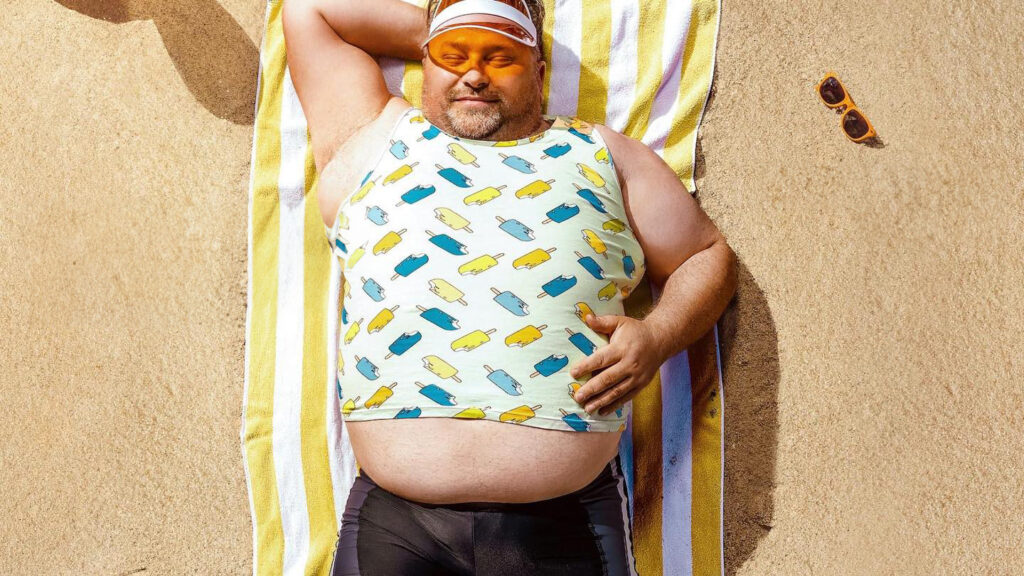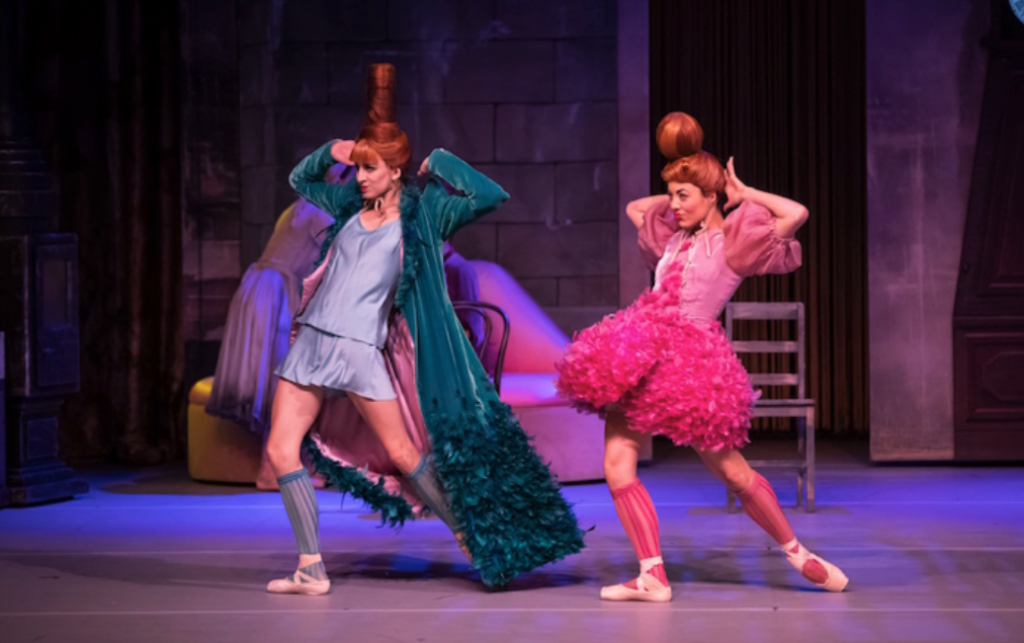
‘Beached’ // UniSQ School of Creative Arts
‘Beached’ was uncomfortable.
Contrary to popular belief, reality television has been on our television screens since the medium began. The OG of reality shows, Candid Camera, actually began life in 1946 first as a hidden microphone radio show and then naturally evolved into a hidden camera television show. Readers of a certain age may remember Australia’s first home-grown reality series Sylvania Waters. So controversial was this show—which seems vanilla by today’s standards—that the titular wealthy waterside suburb in Sydney still labours under its weight over 30 years later.
However, at the birth of a new millennium television viewing changed forever with the “social experiment” that was Big Brother. Originally conceived in the Netherlands, the show now has over 60 versions and has become a reality mainstay through its clever hybridisation of reality tv and game show. Contestants lured by the promise of a large cash prize and/or the heady mix of 15 minutes of fame subject themselves to having their every moment beamed to an audience who can’t wait to judge their personalities (or lack thereof) and peccadillos. But just like a YouTube rabbit hole that starts innocently enough and ends hours later with you watching—wait, what AM I watching and how the hell did I get here?—the relative innocence of Big Brother has in turn spawned darker and more disturbing shows that seek to cash in on human misery. From My Strange Addiction to Here Comes Honey Boo Boo to Bridalplasty, even children aren’t beyond the limits of what networks will do to make a quick buck (check out the premise of Kid Nation if you don’t believe me).
This is the world of Beached, ostensibly fictional but frighteningly familiar. Its premise mimics the American reality TV series My 600lb Life where morbidly obese adults compete with the clock to lose enough weight so that they can undergo gastric bypass surgery. Where Beached differs though is that its morbidly obese “adult” is 19-year-old Arthur “Arty” Arthur, a young man who scarcely qualifies as anything other than a (very) large child.
An important note going forward. This production of Beached was a showcase production for third-year theatre students at Uni SQ and as beginning performers, I think it’s important to encourage rather than criticize. Specific production critique will be therefore kept to broad brush strokes.
Arty, or “Moon” as he is affectionally called by his mother Joanne “JoJo”, weighs “as much as a horse” and hasn’t left the house in over three years. “The world’s biggest teen”, Arty spends his days playing Scrabble and watching re-runs of Midsomer Murders with JoJo as his only company. She feeds him, washes him, applies cream to his enormous skin folds, and even wipes his bum, a task that he is completely unable to perform for himself. Clearly Arty needs help. With Arty having already suffered two heart attacks, and unable to afford the necessary surgery, JoJo contacts the producers of hit TV show Disgusting Bodies who offer to pay for the surgery and a local disability support worker, Louise, to help Arty transform from who he is into who he wants to be: “a man who can wear pants”.
The genius of Beached is in the way it forces its audience to be active participants in the ongoing humiliation of Arty, JoJo and even Louise. With cameras pointing directly towards the audience and cues like ‘cheer’, ‘awww’, ‘laugh’ and ‘clap’ the audience isn’t just watching the show, they’re part of it. With the house lights left on throughout the show, the effect was to cast the audience as both voyeur and participant in a genuinely immersive experience.
(Indeed, Beached relies heavily on audience participation and while I’m fine to do that within the confines of a pantomime I can’t say I was wild about seeing my face suddenly projected up onto three large screens onstage.)
Unfortunately, the effect was somewhat diminished by a slight, but noticeable, delay between the on-stage recording and the overhead screens, which resulted in the always-unsettling effect of the video and the sound being slightly out of sync. There were also some genuinely funny and cleverly designed moments using the green screen, but then there were others that rang too much of students having fun playing silly characters, rather than serious performers. And there were a lot of dropped lines. Too many for a final show of students who have been studying their craft for at least three years. Regardless, the ever-present cameras were a stark reminder that we are all culpable for creating the appetite (no pun intended) for stories like Arty’s.
Despite supposedly weighing in at a whopping 400kg, Arty’s fat suit and accompanying mumu did nothing to further this point. I understand that fat suits are a tricky business, but it was impossible to connect the very obviously very slim actor with the morbidly obese Arty. At the very least the costume designer could have ensured that Arty’s arms and legs were covered by the mumu (or a blanket?) so that we couldn’t see the fat suit underneath. For all the authenticity it conveyed they might as well have shoved a pillow up his shirt and called it a day.
While the play is ostensibly about Arty, his was rather a one-dimensional characterisation. Arty is fat and lonely. He has a rich inner life where he is neither of these things. People are reminded to look beyond the surface. Boo. Hoo. It’s not exactly ground-breaking stuff. Joanne, on the other hand, is skin-crawlingly co-dependent on Arty. He gives her life meaning and purpose and she views him almost as a pet. She intentionally over-feeds him to keep him dependent on and quite literally unable to leave her, going so far as to deliberately sabotage his chance at receiving the surgery when she realises that a thin and self-sufficient Arty won’t rely on her for absolutely everything. A thin and self-sufficient Arty may well (gasp!) get a girlfriend and then JoJo won’t be the woman in his life anymore.
Perhaps it’s my daytime job as a high school teacher, but I’ve seen more than enough examples of parents who are unable or unwilling to, well, actually parent their children; their teenagers are instead their “best friends” or their constant babies. Either way the outcome is inevitably a poorly socialised kid who struggles with the basic fundamentals of the workings of the world. While Beached is certainly an extreme example, the way that JoJo constantly babies 19-year old Arty and refuses to allow him to do anything for himself made my skin crawl. It felt like an Oedipal complex in reverse. In JoJo’s twisted world it is better for Arty to die of a heart attack and be unable to wash or toilet himself than go “out there” and while her final monologue is meant to evoke pity and encourage us to see her as a woman who is herself lonely, it’s just too little too late. It put me in mind of support worker Louise’s earlier explosive monologue (which received an enthusiastic and spontaneous round of applause from the audience) where she derided JoJo’s attempts to derail Arty’s progress because of her own selfishness and fears. As Louise pointedly tells her: we’d all love to be able to sit at home all day, and do nothing except eat and watch TV and claim money from Centrelink because the outside world is hard and it hurts…BUT WE CAN’T! (Louise’s transformation from dowdy to devastating shortly after this monologue was definitely a hit, with the audience giving her another rousing cheer.)
And therein lies the crux of Beached: a selfish and delusional woman who creates a companion that literally can’t leave her; a repressed and jaded support worker who gains personal validation from a client who literally hasn’t seen anyone except his mother in three years; and a narcissistic power-hungry television producer who willingly exploits them both, and the hapless Arty, all in the name of ratings.
And finally, there’s us: the ever-eager audience happily sucking down the misery and misfortunes of others like it was a Maccas meal.
‘Beached’ performed until November 11th at UniSQ in Toowoomba.






